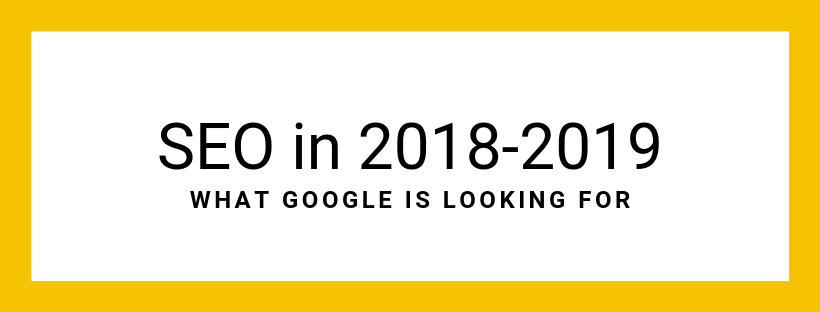Hyvä Theme is Now Open Source: What This Means for Magento Community - Mageplaza
Hyvä is now Open Source and free. Discover what changed, what remains commercial, how it impacts the Magento ecosystem, and how to maximize its full potential.

When first entering to the competition of SEO, you may feel confused about tons of need-to-know things optimizers are whispering out there. Furthermore, you would probably know that there are many optimization experts have been in the world of SEO for over a decade, constantly adapt to any Google new updates.
But before feeling too overwhelmed to continue, you should understand that there are certain core fundamental factors that have permanent ‘old but gold’ value in SEO competition. This article will discuss SEO general knowledge and some current have-to-know ranking factors that you should put in a priority.
Recently, E-commerce businesses have well-developed than ever before. Online shopping shows its popularity since millions of orders are being created every day. This can be considered as both opportunity and challenge of E-commerce stores. They have the chance to serve the customer without the biggest limitation of the bricks and mortars model: physical distance. On the other hand, they are in a severe competition which requires the creativity, trend-sensitivity, persuade ability and many other complicated skills.
However, before persuading any customers about the product’s value and quality, the first thing to do is drawing their attention. At least, the information has to appear, maybe intentionally or unintentionally, but it should be a potential situation that creates the ability for the store to sell a product. Once customers see the product while searching on the internet, a random click can lead to their further buying behaviors.
Acknowledging how important to let customers see the website and product information on search engines, many people believe that SEO is a super supportive method to maximize the customers’ buying power of an online business.
So, what is SEO? SEO is a term which stands for Search Engines Optimization. It is a set of techniques and actions that support the website to be identified and give results fastest, in the largest amount by search engines (Google, Bing, and Yahoo are currently most common). SEO is aimed to make the search engine find your website easily and adequately, and this can motivate your website to be displayed on a high ranking while being searched by a customer.
As mentioned above, E-commerce stores can remove the restriction of physical distance, which can significantly boost sales and revenues. Because of this huge benefits of online shopping, both customers and sellers are performing the transition from in-store shopping to purchasing activities on the Internet.
Actually, this fact can be considered as both opportunity and challenge. For the store owners who are trend-sensitive and know how to flexibly apply appropriate techniques into the online business, E-commerce websites will help define and take advantages from a new promising market. And as introduced above, SEO is one of the most effective techniques that help the store owners do that.
As common, when a customer searches for a product on the internet, this person has already been interested and ready to purchase. Accordingly, this segment will be the most promising target market for online stores. What is a better opportunity than having the product information displayed to a person who needs, wants or even demands that product?
The ability to purchase a product is totally high in that situation. Otherwise, in case the customer does not decide to buy the product, other related products that come from your website possibly still can raise another interest in the customer mind. The impression about your brand and how you all manage the website can bring long-term advantages to your business also.
Unlike the customer intentional buying behavior mentioned above, there are also unintentional buying situations. With an efficient SEO implement, your website can highly rank on the result list even when your product is not exactly what the customer is searching for. However, an ideal rank can create many opportunities further than expected. SEO brings your product to many new customers, and this can be considered as a market expansion when new customers know about your website.

Another further-than-expected effect of SEO is building trust in customer mind. Whether the customer has known your brand or not, the impression of a high ranking website commonly is good and trustful. This can lead to very positive buying attitude. General customers tend to think that such websites are famous and believed by many people, so possibly they get the sense of being in a no-risk buying process. The willingness to purchase accordingly will be higher.
Commonly, one E-commerce store may use more than one promotion methods to boost business efficient such as advertising, discount, personal selling. Once some of them result in the sales and revenue at the same time, the marketer has difficulty to evaluate which one is more efficient than others. It is also complicated to define precisely how many people have involved in the promotion and who were pushed to real buying behaviors.
However, in SEO, there are many supportive promotion techniques that allow the website administrator to evaluate how properly and effective is the promotion campaign.
For instance, Google Analytics can point out which page has the highest amount of clicks, detect the keywords which have led customers to your site, as well as visiting time, amount of visited pages. More awesome, it can give the result based on day, week or month period, or possibly configured amount of time.
By this way, the admin can accordingly define which methods are likely to be most appealing with customers. Decisions which based on the real result and actual condition can bring significant benefits to your E-commerce business.
Do you know that on average, 64% of site traffic comes from big search engines such as Google, Yahoo, MSN? Every day, millions of Internet users use search engines to find their desired products and services. According to this, if an online store ignores this fact and does not make an effort to better website’s rank on search engines, this is similar to saying yes to lose a significant amount of money to competitors.
There will not be any customer that is patient enough to visit over three result pages while searching for some products. In case your website is not within the top 30, the customer might even do not know your store’s existence. This is a reasonable explanation for the fact that 61% of marketers believe that improving SEO and raising their rank in organic results is their top marketing priority purpose.
It is reasonable to say that the most outstanding feature of Google Search is the smart searching algorithm, which has currently well adapted to provide results according to the historical data and also the appropriated ranking signals. This effort is to inform the most common results and make sure they can be as useful for customers as possible.
Based on this fact, you can create your SEO strategy by similarizing your content to the most potential ranking factors that search engines apply. For instance, when someone is searching for the keyword ‘wallet’, websites on first result list may be some Bags & Accessories stores in your local area. This means Google has collected data as well as analyzed the searching and buying behaviors of most common intent buyers. In another word, ‘wallet’ keyword has been considered as ‘where to buy a wallet?’.
For SEO-ers, adapting content to buyers’ searching intent and ranking factors is a very reasonable way to boost views and can significantly contribute to the E-commerce business.
There are hundreds of different signals for a search engine to rank the searching result. According to Backlinko, Google uses over 200 ranking factors in its algorithm. However, all those ranking factors have similarity in the aim. It is the effort to satisfy and bring real value to customers.
To simplify the understanding about hundreds of ranking factors, SEO-ers can separate those into three fundamental factors. We believe that an SEO-er should seriously take these general factors in consideration, which are:

In fact, usability represents for the site architecture. Exactly like how it sounds, the site architecture is about creating a user-friendly and well-managed website.
While doing SEO, before the content optimization and link building, the very first thing a SEOer need to make sure is whether the actual website has been build in a user-friendly way. After all your efforts to pull customer to your site, these efforts only make sense once the website can maintain customer interest. Site architecture is coding and designing in such a way that seems to benefit your customers. Preferably, it should be easy to find, to visit, navigate and follow information. This will considerably better your website’s rank on search engines.
Usability is generally the technical aspects of SEO such as:
Relevance, in other words, is content optimization. This term is what people most think of when SEO is mentioned. This can be done by similarizing your website content with what the customer is looking for. While keyword optimization is an essential task of site architecture, keyword research forms content optimization of SEO.
Maximizing the relevance to searchers can be done by focusing on these following factors:
The administrator has full control over the way the site architecture and the content are managed. However, it is impossible for the admin to control the public trust in the website. Search engines can establish trust online someway, so which site is likely to be considered as an authority in their own industry? Also, how do search engines define a value for the authority?
The answer is link building and social media association. Search engines evaluate the truthfulness of your website based on the company you own. The linked sites to yours and people share the links on social media are also considerable problems. Social media is a strong indicator of how trustful is your source of information. This is also the reason why SEO creates long-term advantages to your site. The trust is not something can be gained in the blink of an eye. This relationship building is an effortful process but is believed to bring you worthy benefits.
There are two main ways for search engines to establish trust:
It is undeniable that Google algorithm keeps changing every year. The rules and ethics have been used in the previous year cannot maintain the ideal usability and efficiency in the current year. It is the reason why one of the most regularly mentioned SEO-ers’ priority qualities is trend-sensitive. While fundamental factors are unchanged, there are also unignorable ranking factors that will make difference in 2018.

It is 2018 and backlinks still perform as one of the most Google ranking factors. They present a clear and precise signal about how good is your website quality and relevance. Also, Google has the tendency to highly consider high-quality backlinks rather than low-quality backlinks in a high quantity.
Google judges your links according to 3 factors:
Also, don’t forget to gain as many good mentions of your website as possible, with or even without hyperlinks. In 2018, it was first confirmed that Google perceives these reviews/testimonials/comments on your products favouringly. Hence, this trend will definitely increase in 2019 and 2021.
From professional SEO-ers’ viewpoint, no one could say that qualified content is not necessary for an ideal SEO rank on search engines. The quality of the content delivered on your website still proves its own considerable role in 2018. Keywords still show powerful ability while the value of content is also an unignorable problem. Managing the page with no valuable content can negatively affect your website, because of Google’s Panda and Google algorithm regular updates.
Long content is not as common as short content as it is quite complicated to be produced on a consistent basis for the following reasons:
Creating high-quality content goes beyond just producing long-form articles. Understanding search intent—the reason behind users’ search queries—is crucial to attracting and engaging organic traffic effectively. One of the most powerful ways to decode user intent is by analyzing user interactions and behaviors directly from your site.
For Magento store owners, integrating a specialized analytics solution like Magento 2 Google Analytics provides deeper insights into visitor activities, preferences, and search patterns. Leveraging this data helps SEO specialists identify:
As suggested by Avinash Kaushik, Digital Marketing Evangelist at Google, before selecting keywords and developing content, SEO professionals should first clearly answer these five key questions:
Addressing these questions through insights provided by Magento 2 Google Analytics empowers you to create content that truly resonates with your audience’s search intent, resulting in better organic performance and higher customer satisfaction.

Unlike traditional keyword research, at present keywords form the content management pathway. By researching about competitors and analyzing the data, you can figure out the most valuable keywords, which have average search volume but ideal click-through rate for target audiences.
Therefore, even when the industry constantly whispers about disadvantages of keyword research, many SEO experts still believe that it is important to identify your primary keywords and divided them into certain topics which are likely to suit customers. Andrea Lehr, a well-known professional Brand Relationship Strategist, shares the method to group keywords in section 2 of this Article.
It is known that more than 64% of searches now are from mobile devices. Thus, it is very understandable that Google has switched from mobile-friendly to mobile-first. This means Google’s index is available on mobile devices and even is put in the first priority.
Google started implementing the ‘mobile first indexing’ several years ago. If some SEO-er wonders when will this campaign go into effect, the answer would be there has not been any exact timeline for completing this process. Google has selectively tried out on some representative websites with the new indexing system.
Gary Illyes, a famous webmaster and Google trend analyst in the SEO industry, said that it will take a few years to complete the full process at the SMX Advanced conference in June 2017. Though you possibly have a certain period of time to prepare for the full switch, SEO experts still believe that preparation should not be postponed.
While many other E-commerce websites are trying best to optimize mobile-friendliness, it is also necessary for you to make sure that your site performance, user experience, functionality and crawlability on mobiles are as good as (if not better than) on desktops.
Google has been using RankBrain, which is the artificial intelligence detecting ranking signals. In 2018, signals that impact most of RankBrain are:
If people stay on your site, then do not like it then bounce away, Google may accordingly judge your website that it is not relevant to what the customer needs. Once a certain number of visitors do like that, this will result in the difficulty for your site to rank higher. On the contrary, if people click through to your website and spend time staying there, that will prove your website relevant. Google highly appreciates this factor.
So once you optimize the titles, descriptions, content as well as deliver the value to the reader, you can remarkably boost the search engine ranking.
Have you ever known that nearly 60% sites which have been in top 10 on Google result list are there years old or more? As result of Ahrefs study, very few sites less than one year old can achieve such that high ranking.
On the other hands, sometimes the domain name matters. Although Google has made some penalties to restrict Exact-match Domains (which contain target keywords in the URL), that restriction is only activated to spammy sites with thin content.
Besides domain name, the authority also matters. When considering authority, SEO-ers concern about PA (page authority) and DA (domain authority) score. These scores can be used to compare websites or tracking the ranking strength of a website over a period of time. PA and DA ranked from 0 to 100, you can check these scores by inserting your URL into the search box on Open Site Explorer. You will get a report which indicates detailed information about the authority of the domain, page and established links.
Magento website optimization on search engines is a long process, and it is important to regularly update new social trends. SEO-ers should be patient, trend-sensitive and flexible because there is not a common have-to-do formula for rank optimization. Besides, SEO requires time and effort investment as well as many technical skills.
Thus, if you are still confused about where to get started and how to optimize your website ranking on search engines, using SEO tools is a great choice. You can refer here to learn how Plugin SEO magento work on your Magento 2 stores. With a bunch of such outstanding features as SEO checklist, SEO reports, prevention of duplicating content problem, metadata template rules, and so on, SEO extension by Mageplaza promises to satisfy all your requests.